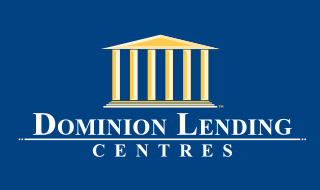| |
| C:UsersToshibaDesktopDSCN0716.jpg |
|
|
| |
Colin Dawes
Dominion Lending Centres Interest Advantage
|
Phone: 604-556-6718
Fax: 888-845-4871 |
| |
|
|
|
|
|
|
|
|
Hi Brenda
|
|
Welcome to the October issue of my monthly newsletter!
|
 |
|
This month’s edition delves into the details of breaking a mortgage early, as well as highlights some important details when your kids become renters. Please let me know if you have any questions or feedback regarding anything outlined below.
Thanks again for your continued support and referrals!
 |
|
|
| |
 |
|
Is It Time To Lock In A Variable Rate Mortgage?
 |
|
| |
|
Approximately 32 per cent of Canadians are in a variable rate mortgage, which with rates effectively declining steadily for the better part of the last ten years has worked well.
Recent increases triggers questions and concerns, and these questions and concerns are best expressed verbally with a direct call to your independent mortgage expert – not directly with the lender. There are nuances you may not think to consider before you lock in, and that almost certainly will not be primary topics for your lender.
Over the last several years there have been headlines warning us of impending doom with both house price implosion, and interest rate explosion, very little of which has come to fruition other than in a very few localised spots and for short periods of time thus far.
Before accepting what a lender may offer as a lock in rate, especially if you are considering freeing up cash for such things as renovations, travel or putting towards your children’s education, it is best to have your mortgage agent review all your options.
And even if you simply wanted to lock in the existing balance, again the conversation is crucial to have with the right person, as one of the key topics should be prepayment penalties.
In many fixed rate mortgage, the penalty can be quite substantial even when you aren’t very far into your mortgage term. People often assume the penalty for breaking a mortgage amounts to three months’ interest payments, which in the case of 90% of variable rate mortgages is correct. However, in a fixed rate mortgage, the penalty is the greater of three months’ interest or the interest rate differential (IRD).
The ‘IRD’ calculation is a byzantine formula. One designed by people working specifically in the best interests of shareholders, not the best interests of the client (you). The difference in penalties from a variable to a fixed rate product can be as much as a 900 per cent increase.
|
|
|
|
The massive penalties are designed for banks to recuperate any losses incurred by clients (you) breaking and renegotiating the mortgage at a lower rate. And so locking into a fixed rate product without careful planning can mean significant downside.
Keep in mind that penalties vary from lender to lender and there are different penalties for different types of mortgages. In addition, things like opting for a “cash back” mortgage can influence penalties even more to the negative, with a claw-back of that cash received way back when.
Another consideration is that certain lenders, and thus certain clients, have ‘fixed payment’ variable rate mortgages. Which means that the payment may at this point be artificially low, and locking into a fixed rate may trigger a more significant increase in the payment than expected.
There is no generally ‘correct’ answer to the question of locking in, the type of variable rate mortgage you hold and the potential changes coming up in your life are all important considerations. There is only a ‘specific-to-you’ answer, and even then - it is a decision made with the best information at hand at the time that it is made. Having a detailed conversation with the right people is crucial.
It should also be said that a poll of 33 economists just before the recent Bank of Canada rate increase had 27 advising against another increase. This would suggest that things may have moved too fast too soon as it is, and we may see another period of zero movement. The last time the Bank of Canada pushed the rate to the current level it sat at this level for nearly five full years.
Life is variable, perhaps your mortgage should be too.
As always, if you have questions about locking in your variable mortgage, or breaking your mortgage to secure a lower rate, or any general mortgage questions, I’m here to help!
|
|
|
| |
 |
|
| |
Teaching Your Kids About Renting
 |
|
 |
|
| |
|
Fall is here! The kids have moved out for school. Help them learn about renting and coping with issues during their tenancy.
One property manager, who has been in the business for decades, compares landlord and tenant relationships to marriage. Initially, both parties are enthused with one another and things look rosy. As the tenancy progresses, the initial rosy viewpoint shifts to a more realistic one as issues arise. These could be minor issues, such as a tenant wanting repairs to happen more quickly, or there could be major issues, such as non-payment of rent.
|
|
|
|
The below links address practical tenancy issues:
If you’re a tenant, landlord or property manager, Canada Housing and Mortgage Corporation (CMHC) can offer you information on tenant and landlord rights, responsibilities and rental practices across the country: www.cmhc.ca.
|
|
|
| |
 |
|
| |
 |
|
Homeowner Tips
|
|
It’s fall, and that means it’s time to get outside and rake the falling leaves. Below is a list of tips compiled by Popular Mechanics to help get the job done.
PATIENCE
Clear your pathways and high-traffic areas of leaves on an ongoing basis, but don't bother raking your whole yard until all the leaves are down.
USE THE RIGHT TOOLS
That rusty metal fan rake in your shed might seem like an old friend, but perhaps its useful days are over. There are also rake alternatives, including push-power leaf collectors that help take some of the backache out of raking.
TAKE CARE OF YOUR BODY
Speaking of backache, be sure to practice proper raking technique before, during, and after your work. Raking is a real workout, and you need to warm up your body by stretching before you start.While you're raking, be sure to keep a good posture and stand upright. Switch your main (bottom) hand on a regular basis, and always bend at the knees (not the back) when you stoop to pick up a pile.
WORK SMART
This is the key to efficient raking. Rake your leaves into small piles on top of a tarp or a piece of plastic, then drag that pile to your main pile or compost.
RAKE WHEN IT'S DRY
This one is simple but important. Wet leaves are heavier than dry ones, so try to do your raking during a dry stretch of weather.
|
|
|
| |
 |
|
About Dominion Lending Centres & DLC Leasing
 |
|
| |
 |
We are Canada's largest and fastest-growing mortgage brokerage! |
 |
We have more than 2,600 Mortgage Professionals from more than 350 locations across the country! |
 |
Our Mortgage Professionals are Experts in their field and many are ranked among the best nationally. |
 |
We work for you, not the lenders, so your best interests will always be our number one priority |
 |
We have more than 100 mortgage programs, making it easy to choose the best fit for your unique situation. |
 |
We close loans in all 10 provinces and 3 territories. |
 |
We can process your mortgage in as few as 7 days. |
 |
We are the preferred mortgage lender for several of Canada's top companies. |
 |
Dominion Lending Centres' Mortgage Professionals are available anytime, anywhere, evenings and weekends - and we'll even come to you! |
|
 |
| |
 |
There are two types of debt: secured and unsecured. When you borrow money to buy a house, the bank can take back the house to recoup their money if you don’t pay the debt. That means the debt is secured – it’s being balanced against something that you want to keep, and gives the bank some measure of security that they’re going to be able to recover the money they’ve loaned you. Unsecured debt, on the other hand, means the bank can’t reclaim the thing you’re buying with the borrowed money. (Credit card debt is unsecured, and so are student loans.) Click here to look at the impact of four key consumer loans, a mix of secured and unsecured debt, on your credit score – and, ultimately, your mortgage worthiness, courtesy of Forbes.
|
|
|











